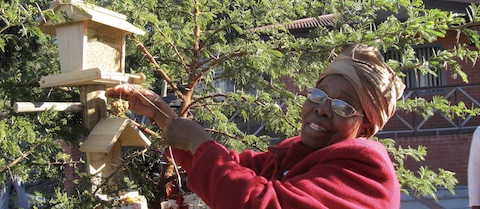More than 350 delegates including high-level Education for Sustainable Development (ESD) experts, academics, ambassadors, chief executive officers of corporations and policy makers participated in the Africa Regional Meeting on ESD for 2030 held on 26 May 2021.
The meeting followed the World Conference on Education for Sustainable Development (ESD), hosted by Germany from 17-19 May 2021. Participants attended the regional meeting agreed to take forward commitments made by the Member States at the World conference.
Speaking during the virtual regional meeting, UNESCO Regional Director for Southern Africa, Prof. Hubert Gijzen emphasized the importance of education in building a sustainable world.
Education is the most powerful weapon you can use to change the world and Education for Sustainable Development equips learners with the skills to contribute to a more sustainable world.
-- Prof. Hubert Gijzen
He urged delegates to turn the outcomes of the Global conference into concrete actions that can implemented.
The regional meeting took stock of the achievements, lessons learned, available resources and partners related to ESD in Africa. It also reviewed region-specific needs and approaches for ESD for 2030 and encouraged Member States in the region to commit to the implementation of ESD for 2030, in particular to develop and launch their country initiatives.
The meeting highlighted ESD activities in the Africa region and the commitment of Member States in Africa to the five action areas of Education for Sustainable Development. These are: advancing policy through mainstreaming ESD; transforming learning and training environments through the adoption of whole-Institution approach; building capacities of educators and trainers; empowering and mobilizing youth; and accelerating sustainable solutions at local level.
A panel session moderated by Dr. Dimitri Sanga, Director the UNESCO Regional Office in Dakar, Senegal, featured panellist from Cameroon, Mozambique, Nigeria, Senegal and Uganda. Some of the highlights included: responses by organization to ameliorate the challenges of recycling waste in local educational context, capacity building of school administrators and teachers on how to integrate ESD into their teaching; creation of ecological tools and advocating for the environment; the linking of ESD to sustainable development goals and national development plans; and promotion of ESD policies.
In her closing remark, Ms. Ann Therese Ndong-Jatta, UNESCO Regional Director for Eastern Africa stressed that ESD is more than environmental education. She said it includes an understanding of the essence of education, and achievement of societal transformation through the rethinking of education to ensure quality, relevance, inclusion of all learners through the adoption of a multi-sectoral approach to the delivery of Education for Sustainable Development.


